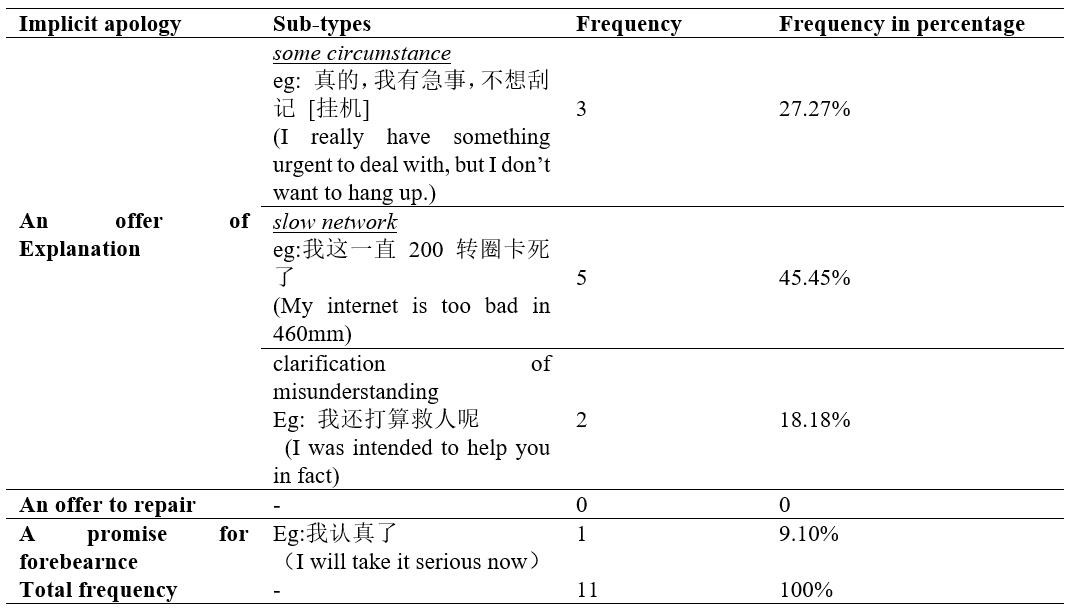An Analysis of the Divergence of Apology in Online Game Setting based on Honor of King
Abstract
Apology manifests in various dimensions of social life and in sophisticate forms has partly contributed to its significance of research. Furthermore, technological affordance in current society has provided much more possibilities to apologetic behavior in terms of its realization through various expressions, which in essence is realized by an effort of dynamic adaptive process. It, therefore, has advanced new requirements for depiction comprehensive illustration of apologetic discourses, which should be a potential direction of further research. The present study sheds light on the apologetic behaviors in a unique but newly emerging environment of online game, Honor of King. The pieces of written discourses where an apologetic behavior occurred in this context is collected to form a corpus, which then was analyzed by virtue of relevant politeness and adaptability theory. A combination of both qualitative and quantitative analysis has led to the conclusion that due to technological affordance, apologetic behaviors in such an environment present a distinct landscape from offline one or even other types of online communication context. Moreover, it also finds further evidence to the claim that some disparities exist in terms of the apologetic pattern between the Chinese and the English. This, in the final analysis, demonstrates potential for more detailed illustration to a complete picture of apologetic behavior in modern society. Besides, it also lends more supports to the great significance of adaptability to dynamic context, where new possibilities and constraints are advanced by technological affordance.
Downloads
References
Fu, B. (2010). Han yu dao qian yu de hua yu yan jiu [A Discourse Study on the Language of Apologies in Chinese]. Yu yan jiao xue yu yan jiu [Language Teaching and Linguistic Studies], 6, 70-77.
Carrió-Pastor, M. L., & Calderón, R. M. (2015a). A Contrastive Analysis of Metadiscourse Features in Business e-mails Written by Non-native Speakers of English. Procedia - Social and Behavioral Sciences, 173, 214-221. https://doi.org/10.1016/j.sbspro.2015.02.055
Carrió-Pastor, M. L., & Calderón, R. M. (2015b). A Contrastive Analysis of Metadiscourse Features in Business e-mails Written by Non-native Speakers of English. Procedia - Social and Behavioral Sciences, 173, 214-221. https://doi.org/10.1016/J.SBSPRO.2015.02.055
Coesemans, R., & De Cock, B. (2017). Self-reference by politicians on Twitter: Strategies to adapt to 140 characters. Journal of Pragmatics, 116, 37-50. https://doi.org/https://doi.org/10.1016/j.pragma.2016.12.005
Davies, B. L., Merrison, A. J., & Goddard, A. (2007). Institutional apologies in UK higher education: Getting back into the black before going into the red. Journal of Politeness Research, 3(1), 39-63. https://doi.org/10.1515/PR.2007.003
Flowerdew, J. (2009). Corpora in Language Teaching. The Handbook of Language Teaching, June, 327-350. https://doi.org/10.1002/9781444315783.ch19
Gill, M. (2017). Adaptability and affordances in new media: Literate technologies, communicative techniques. Journal of Pragmatics, 116, 104-108. https://doi.org/10.1016/j.pragma.2017.05.002
Kasanga, L. A., & Lwanga-Lumu, J. C. (2007). Cross-cultural linguistic realization of politeness: A study of apologies in English and Setswana. Journal of Politeness Research, 3(1), 65-92. https://doi.org/10.1515/PR.2007.004
Li, J. (2007). Dao qian xing wei de hua yu mo shi yu yu yong te dian fen xi [An Analysis of the Discourse Patterns and Pragmatic Characteristics of Apologizing in Chinese]. Yu yan jiao xue yu yan jiu [Language Teaching and Linguistic Studies], 1, 11-19.
Lutzky, U., & Kehoe, A. (2017). “Oops, I didn’t mean to be so flippant”. A corpus pragmatic analysis of apologies in blog data. Journal of Pragmatics, 116, 27-36. https://doi.org/10.1016/J.PRAGMA.2016.12.007
Morrow, P., & Yamanouchi, K. (2020). Online apologies to hotel guests in English and Japanese. Discourse, Context & Media, 34, Discourse, context & media, 34. https://doi.org/10.1016/j.dcm.2020.100379
Page, R. (2014). Saying “sorry”: Corporate apologies posted on Twitter. Journal of Pragmatics, 62, 30-45. https://doi.org/10.1016/j.pragma.2013.12.003
Pan X. (2004). Han yu yan yu dao qian xing wei de xing bie cha bie yan jiu [Gender Differences in Chinese Apologies]. Xi nan jiao tong da xue xue bao [Journal of Southwest Jiaotong University], 5(1), 89-92.
Shukla, S., & Shukla, R.. (2020). The pragmatics of Indian political apologies: Sorry, but not sorry. Discourse & Society, 31(6), 648-669. https://doi.org/10.1177/0957926520939688
Virtanen, T. (2017). Adaptability in online consumer reviews: Exploring genre dynamics and interactional choices. Journal of Pragmatics, 116, 77-90. https://doi.org/https://doi.org/10.1016/j.pragma.2017.03.011
Wierzbicka, A. (1987). English Speech Act Verbs. A Semantic Dictionary. Sydney: Academic Press.


This work is licensed under a Creative Commons Attribution 4.0 International License.
Copyright for this article is retained by the author(s), with first publication rights granted to the journal.
This is an open-access article distributed under the terms and conditions of the Creative Commons Attribution license (http://creativecommons.org/licenses/by/4.0/).









1.png)









1.png)











